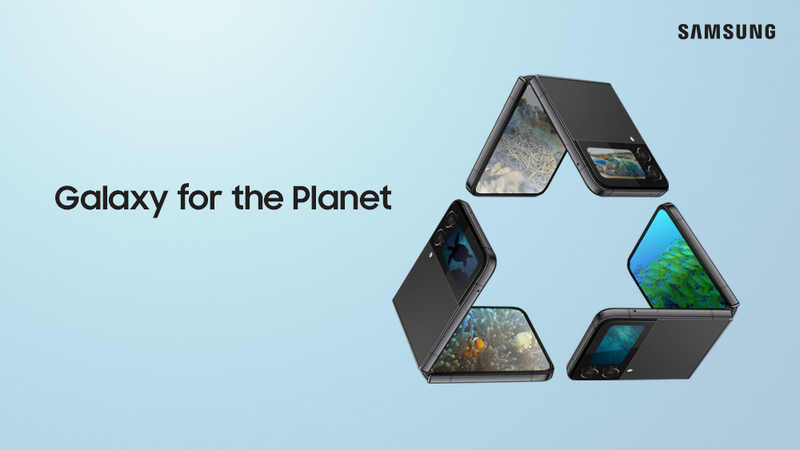
Samsung Galaxy Foldables Drive More Sustainable Future
Samsung Electronics Co., Ltd. announced that it has made progress towards achieving the 2025 sustainability goals for the MX (Mobile eXperience) Business. Key initiatives include developing and incorporating recycled materials into products, designing more eco-conscious packaging and giving new life to older Samsung Galaxy devices to reduce e-waste.
Since announcing the Galaxy for the Planet vision at Unpacked in August 2021, Samsung has worked diligently to create new ways to recycle and repurpose resources that would otherwise become harmful waste, minimize its environmental footprint and inspire innovation that helps preserve the planet. Progress made so far on its sustainability journey was shared recently.
“Samsung is taking consistent and impactful actions that help protect people and the planet. We marry sustainability and innovation in everything we do,” said TM Roh, President and Head of Mobile eXperience Business at Samsung Electronics. “I am proud of our progress to date. At the same time, it’s been a humbling experience that enables us to continue on our journey towards achieving our sustainability vision with even more conviction and rigor than before.”
Developing new, recycled materials is a key focus area for Galaxy for the Planet. The more Samsung recycles, the more resources it preserves. While repurposing materials into Galaxy devices presents many challenges, the benefits for the planet make it well worth the effort.
Repurposing discarded fishing nets is only one example of Samsung’s advancements in increasing its use of recycled materials in its products.
Samsung has incorporated eco-conscious materials including repurposed fishing nets, post-consumer materials (PCM) or bio-based resin into 90% of Galaxy devices launched in the past year. For the Galaxy Buds2 Pro, more than 90% of the product is made with recycled materials.
Samsung has also reduced the volume of packaging for Galaxy Z Flip4 by 52.8% and for Galaxy Z Fold4 by 58.2% respectively compared to the first-generation Galaxy foldables. By reducing each device package’s volume, Samsung ultimately reduces its environmental footprint in transporting these units using trucks, planes and ships. The company estimates that this reduction in packaging volume equates to a reduction in carbon emissions from transportation of approximately 10,000 tons by the end of 2022.5 In addition to continually evolving packaging for flagship smartphones, Samsung will expand eco-conscious packaging to other product categories.
To address this, Samsung has been expanding the Galaxy Upcycling program, which gives new life to older Galaxy smartphones. Through Galaxy Upcycling at Home, Samsung repurposes smartphones with a simple software update that turns them into smart home devices that support everyday needs, such as childcare and pet care.
There will be more challenges along the way, but Samsung will hold itself accountable and continue to report progress on its mission to effect positive change and inspire others to protect the planet for generations to come.
Samsung inspires the world and shapes the future with transformative ideas and technologies. The company is redefining the worlds of TVs, smartphones, wearable devices, tablets, digital appliances, network systems, and memory, system LSI, foundry and LED solutions.





